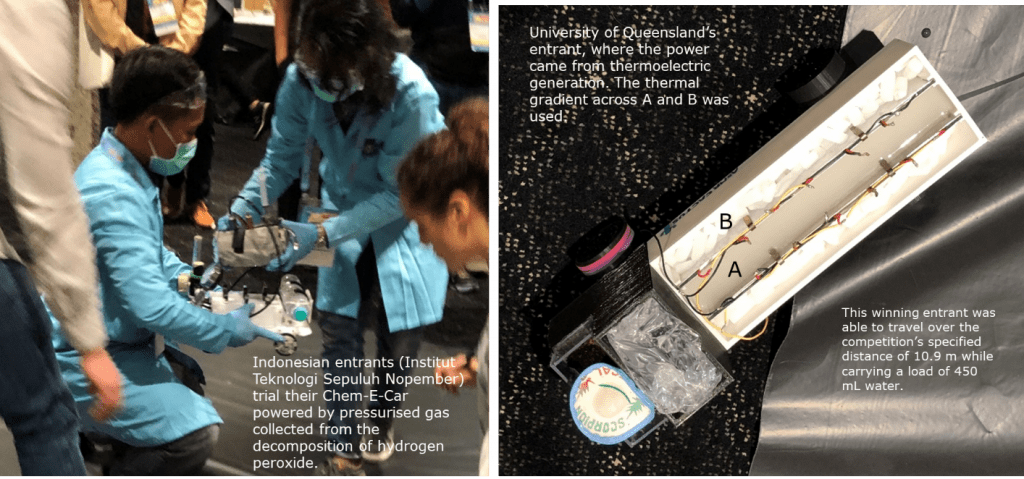The 48th Chemeca was held in Sydney NSW, Australia from 29 September – 2 October 2019. This annual meeting brings together chemical engineers from Australia, New Zealand and other countries to share their insights and innovations relevant to chemical engineers across the wide range of industries.
The Australian and New Zealand Federation of Chemical Engineers is the primary instigator of Chemeca, and this name was the name given to the annual conference of Chemical Engineers and Industrial Chemists, which started in Australia in 1970 and which was sponsored by the Institution of Chemical Engineers (IChemE), the Institution of Engineers Australia (IEAust now Engineers Australia), and the Royal Australian Chemical Institute (RACI).
This year the theme was, as stated on the website:
“The theme for 2019 is Engineering Megatrends and the Elements. The traditional chemical engineering paradigms, upon which most existing chemical engineering programs and approaches are based, have been unit operations, transport phenomena, and process control. These have enabled industry, research, and education in chemical engineering to provide the kind of resources, materials and technologies that have become the ubiquitous underpinning of our everyday lives around the world – so much so that we often take them for granted. As the fourth industrial revolution progresses, what will be the next chemical engineering paradigm? How will the significant challenges facing the world today, the emerging megatrends in engineering and our roots as a discipline in manipulating and combining the fundamental chemical elements drive the development of the next chemical engineering paradigm?”
An emerging (and potentially ‘mega’) trend featured at this year’s Chemeca was that on energy from Hydrogen. Hydrogen Mobility in Australia was a pretty hot topic of discussion, and led by invited speaker Alan Finkel, Australia’s Chief Scientist who presented on the key opportunities and challenges for a future with Hydrogen (see also the white paper). Later, Kevin Peakman presented on BOC’s hydrogen refueller project in Brisbane, which showcased an exciting new project that aimed to create Australia’s first full scale Public Hydrogen Refeuller. Much of the capability resided in patented technology around Linde’s ionic compressor. The speaker also talked about how the project was to overcome issues around safety and how the plan was to create the opportunity to complement electric vehicles and not to replace them. The circular economy around the use of Hydrogen as an energy source was also discussed by ITM Power’s Managing Director Neil Thompson. Dr Thompson spoke about how proton exchange membrane (PEM) electrolysers could be used to extract ‘feedstock’ from wastewater to then produce hydrogen.

There was also quite an emphasis on Industry 4.0, where Jim McIlvenny, President of Dow Asia Pacific, commented that China’s chemical engineers were very much ahead in this space. The issues of concern were whether the current Chemical Engineering curriculum in our region was relevant enough to prepare our students to excel in the current Industrial Revolution. In relation, John Prichard of IChemE, talked about the important role the institution has played in establishing standards and regulatory practice, and that with the new industrial revolution, there is a challenge to transform and update.
CHEMECA is also an opportunity for the Chemical Engineering Heads of Department of the Australian G8 universities, together with HoDs from NZ universities, to meet and ‘talk shop’. In addition, the annual Chem-E-Car competition saw some pretty interesting entrants.
4 thoughts on “CHEMECA 2019”